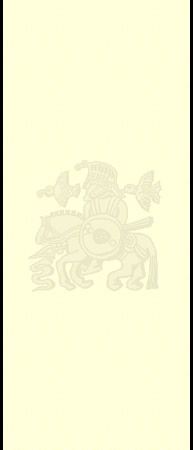A Review of The Insanity of Empire:A Book of Poems Against the Iraq War.
by Norbert Blei
Sometimes in attempting to get a handle on Robert Bly, I think of Proteus, the god who had the power to predict the future and the power to change himself/his shape at will—if only one could catch him, hold him still. . . .
There is a poem from his National Book Award collection of poems, The Light Around the Body (1966):
COUNTING THE SMALL-BONED BODIES
Let’s count the bodies over again.
If we could only make the bodies smaller,
The size of skulls,
We could make a whole plain white with skulls in the moonlight!
If we could only make the bodies smaller,
Maybe we could get
A whole year’s kill in front of us on a desk!
If we could only make the bodies smaller,
We could fit
A body into a finger-ring, for a keepsake forever.
There’s a poem that works for any war. One we might pass on today to bush, Cheney, Rumsfeld, Rice, Rove . . . all the true believers. All the Washington chicken hawks so skilled in shielding Americans from the truth—any mention of dead and wounded soldiers, enemy casualties.
When Bly accepted the honor and prize money for
The Light Around the Body, the country, perhaps, was not accustomed to hearing such a passionate response from one of its major poets: "
You have given me an award for a book that has many poems in it against the war. I thank you for the award. As for the thousand-dollar check, I am turning it over to the draft-resistance movement, specifically to the organization called the Resistance. . . ." —
March 6, 1969.
Bly, still a major American poet of immense powers, still working his magic, still attempting to get us inside ourselves (for better) through words. Still impossible to hold fast, keep quiet, define. He’s the American Poet-Shaman of our times.
Unfortunately, we will never be honored by the powers-that-be as America’s Poet Laureate. He will not be invited to the White House for tea. He tells too many truths about the American psyche too well to receive any such distinction. We prefer to silence such poets. Dismiss them. (Remember Laura Bush’s first poetry reading at the White House? Cancelled. Fearful of what the poets might say about Iraq.)
Let it be noted that along with all the other significant writing he’s doing these days (
Eating the Honey of Words, The Soul is Here for Its Own Joy, The Night Abraham Called to the Stars), Bly continues to write the political poem that comes out of his own deepest privacy.
Last year (2004), a small press published a book of his poems against the Iraq War—to the sound of one hand clapping. To almost no one’s attention or acclaim. No major, few if any reviews. The book is called
The Insanity of Empire. Wherein Bly explains in a brief introduction, "A Note About These Poems":
"I was surprised the other day as I read The Light Around the Body, a book of my own poems, published in 1966, how little had changed since that time. We are still in a blindfold, still being led by the wise of this world. I’ve taken a few poems from that old Sixties book and joined them with new ones for this collection. We are still causing endless suffering with our well-known nonchalance."
The first poem in The Insanity of Empire may well go down in American literature as the single most important poem to address our time. An honest poem that wrestles with the plight we are in. A perfect poem to end this piece and suggest a poet, a book, a practice of protest all America should honor and heed:
CALL AND ANSWER
Tell me why it is we don’t lift our voices these days
And cry over what is happening. Have you noticed
The plans are made for Iraq and the ice cap is melting?
I say to myself: "Go on, cry. What’s the sense
Of being an adult and having no voice? Cry out!
See who will answer! This is Call and Answer!"
We will have to call especially loud to reach
Our angels, who are hard of hearing; they are hiding
In the jugs of silence filled during our wars.
Have we agreed to so many wars that we can’t
Escape from silence? If we don’t lift our voices, we allow
Others (who are ourselves) to rob the house.
How come we’ve listened to the great criers—Neruda,
Akhmatova, Thoreau, Frederick Douglass—and now
We’re silent as sparrows in the little bushes?
Some masters say our life lasts only seven days.
Where are we in the week? Is it Thursday yet?
Hurry, cry now! Soon Sunday night will come.
—Norbert Blei, Free Verse #82, 2005
... more books of poetry
Back to Top



